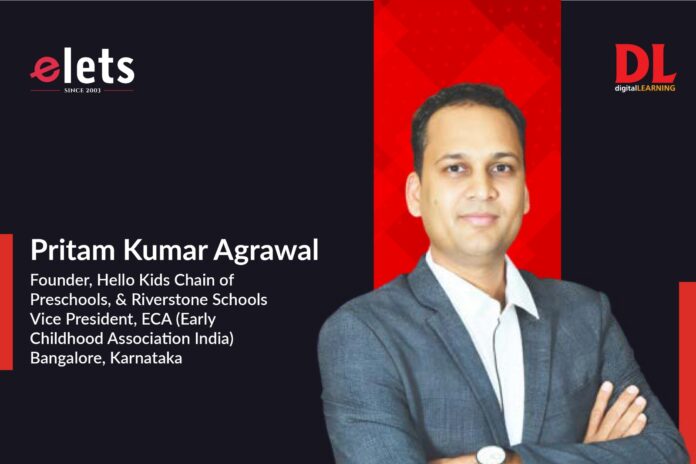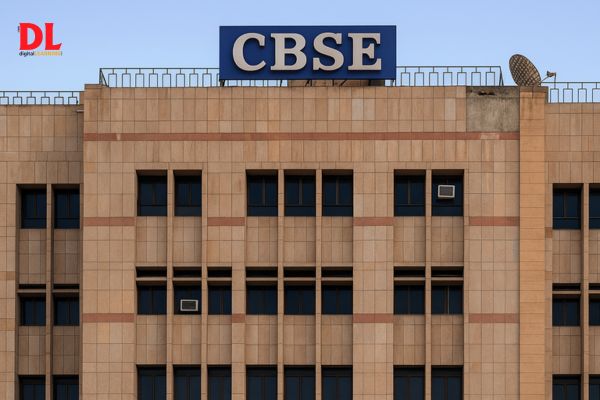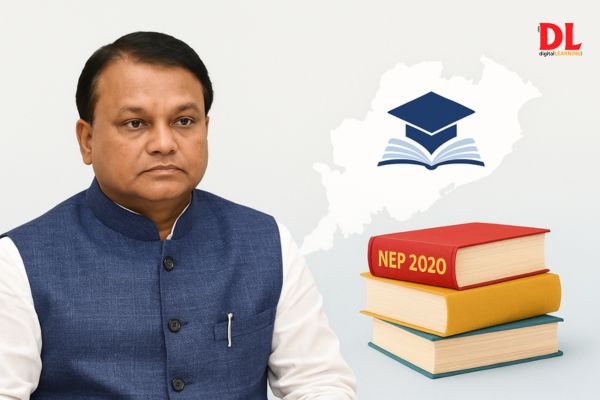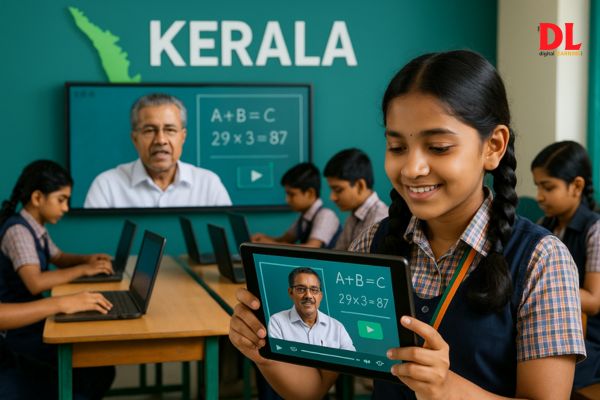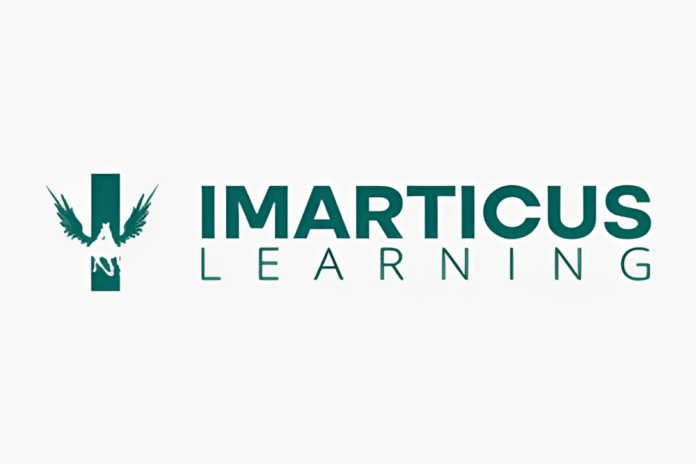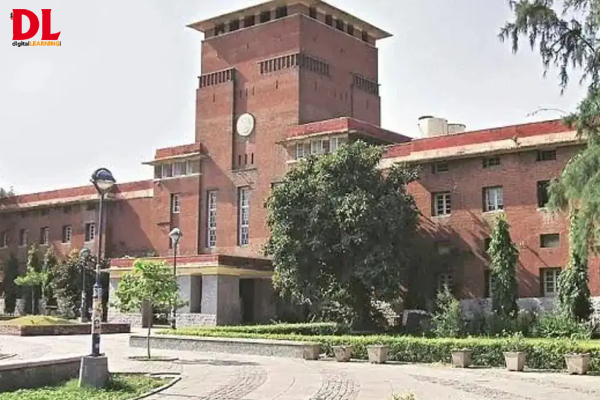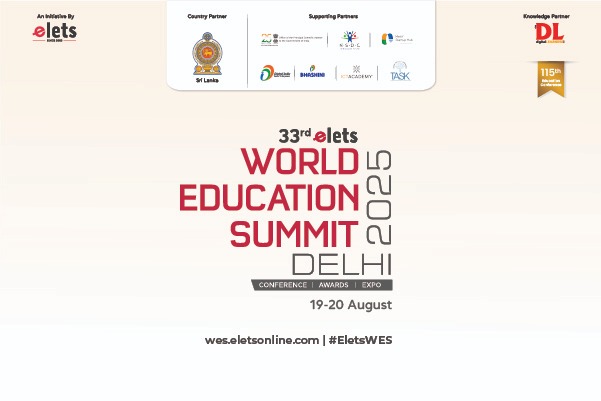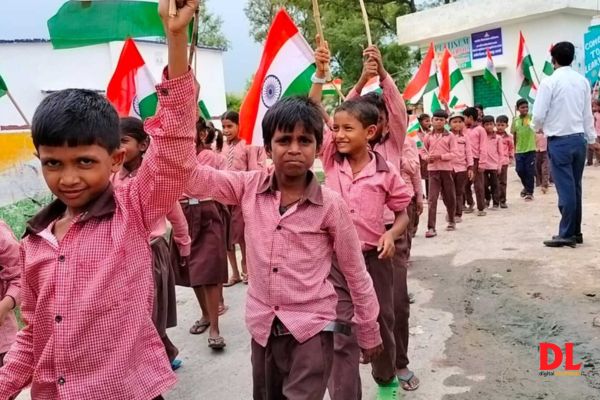The curtains came down on the 33rd edition of the Elets World Education Summit (WES) 2025, organised by Elets Technomedia in collaboration with Digital Learning as Knowledge Partner, after two days of powerful discussions, collaborations, and recognitions.
Held on 19–20 August 2025 at Eros Hotel, Nehru Place, New Delhi, the summit witnessed an unprecedented convergence of 500+ education leaders, policymakers, academicians, and innovators from across India and beyond, reaffirming its position as one of the most prestigious platforms in the global education landscape.
Guided by the theme “Reimagining the Future of Global Education – Powered by India,” the summit featured two dedicated tracks on Higher Education and School Education, as well as exclusive roundtables that facilitated focused dialogues on innovation, policy transformation, and digital advancement in education.
Highlights of WES 2025
- 500+ curated attendees including senior policymakers, institutional heads, and innovators
- 200+ thought leaders from top institutions like IITs, IIMs, and global universities
- 35+ partners, exhibitors, and collaborators showcasing next-gen education solutions
- Launch of the 183rd Digital Learning magazine, featuring pioneering stories of transformation across India’s education ecosystem
- An exclusive cultural evening, blending India’s heritage with academic excellence
Dignitaries & Thought Leaders
The summit was graced by:
- Special Guests: Prof. Anil Sahasrabudhe (NETF, NAAC, NBA) | Dr. Sudhir K. Jain (Former VC, BHU) | Dr. Rabindra Narayan Behera (MP, Lok Sabha) | H.E. Mahishini Colonne (High Commissioner of Sri Lanka to India), and others.
Prof. Anil Sahasrabudhe, Chairman, National Educational Technology Forum (NETF), Chairman of Executive Committee, NAAC & Chairman, National Board of Accreditation (NBA), “When we speak of India’s National Education Policy (NEP), which is being recognised globally as one of the most forward-looking policies, one of its most significant features is the multiple entry and exit system. And this idea directly relates to the real-life experiences of so many students. Many students today find themselves in fields chosen due to parental or societal pressure, rather than their calling. The flexibility of the NEP ensures that such students are not trapped in a single pathway; it allows them to realign their academic journey in accordance with their true interests.”
Dr. Sudhir K. Jain, Former Vice Chancellor, Banaras Hindu University, Former Director, Indian Institute of Technology, Gandhinagar, “About a decade ago, the Government of India asked all IITs to undergo peer reviews. These reports had a fascinating insight. In one section, teachers said, “Students are not interested in learning.” In another section, students responded, “Teachers are not interested in teaching.” So, where does the problem really lie? This brings us to the central challenge of education—the transformation of a young individual into a responsible adult, capable of leading a fulfilled life. For any real change, three things are essential: heart, mind, and means.”
HE Mahishini Colonne, High Commissioner, High Commission of Sri Lanka, New Delhi, “Sri Lanka and India are not only the closest of neighbours geographically, but our bonds run far deeper. Recorded history reminds us of Emperor Ashoka’s gift to my country when, in the 3rd century BCE, he sent his son Arhat Mahendra and daughter Theri Sanghamitra to Sri Lanka with the teachings of Gautama Buddha. Their arrival marked the beginning of monastic education, with the sangha (monastic communities) and viharas (monasteries) becoming central to our education system. Today, India continues to be a pillar of support in education for Sri Lankan students and professionals. Every year, the Government of India offers a wide range of scholarships through the Indian Council of Cultural Relations (ICCR), the Indian Technical and Economic Cooperation (ITEC) Programme, and various bilateral initiatives.”
Dr. Biswajit Saha, Director (Skill Education), Central Board of Secondary Education (CBSE), “We are living in times of turbulence—both in the global economy and in the shifting geopolitics among nations. Amidst this, the Government of India has laid out a clear vision: by 2047, India must emerge as a Viksit Bharat. That is just 22 years away. With a population of 1.4 billion, the question before us is—how do we reach this goal? The answer lies in nurturing the generation that is stepping into the education system today—right from the Balvatika stage under the New Education Policy. If the seeds of Viksit Bharat are to be sown, they must be sown in the first 18–20 years of every child’s learning journey.”
Special Address were delivered by Dr. Rabindra Narayan Behera, Member of Parliament, Lok Sabha, Government of India, “As we envision India in 2047, it is imperative that the next generation is educated in a way that nurtures their inherent talent and equips them for the future. Artificial Intelligence has the potential to reshape society and open new dimensions of progress. Our own tradition offers inspiration—centuries ago, the great Sanskrit scholar Pāṇini developed an extraordinary system of grammar in the Aṣṭādhyāyī, which is often seen as one of the earliest examples of formal and algorithmic thinking. Modern linguistics and computational theories have drawn on his methods, reminding us that India has long contributed to the foundations of knowledge. Looking ahead, the convergence of biotechnology, artificial intelligence, and cybersecurity will define the future, and India must lead in these transformative domains.”
Smt. Padma Jaiswal, IAS, Secretary to the Government of the State & Union Territories and Secretary, Government of Puducherry, “The National Education Policy (NEP) represents a significant advancement over the previous 10+2 model, introducing the 5+3+3+4 structure that emphasizes foundational, preparatory, middle, and secondary stages of learning. A key highlight of the NEP is the integration of higher education with vocational training and the strengthening of academia–industry collaboration. From an industry perspective, implementing programmes under the NEP has posed new challenges, particularly in identifying effective pedagogies for diverse subjects. For instance, while teaching linear programming in Mathematics to Class IX students, we leveraged Generative AI to create worksheets, evaluation methods, and assessment techniques. The outcomes were encouraging—students demonstrated a marked improvement in engagement and learning achievements. This reflects the potential of NEP, when combined with new-age technologies, to truly transform education delivery in India.”
Manoj Kumar Srivastava, Director Training, CBSE, “In the school education sector, at CBSE, we firmly believe that every child is entitled to quality education irrespective of caste, creed, colour, or socio-economic background. This commitment requires collective responsibility as well as individual reflection—whether it is about our professional competence, our societal contribution, or how our institution can create resources and environments where every child feels happy to come to school. Every learner must be given the right opportunities to discover and realise their true potential. At the national level, our focus is on preparing children to be future-ready by ensuring that schools are sufficiently equipped with the skills, resources, and capabilities needed to nurture holistic development.”
Dr. Vinita S. Sahay, Director, Indian Institute of Management (IIM), Bodh Gaya, Bihar, “IIM Bodh Gaya is not just an institution for me, I live and breathe it. Education, I believe, is among the noblest professions, one where we truly touch lives. Today, IIM Bodh Gaya is the largest IIM in terms of students, with about 1,600 on campus in our full-time, long-duration residential programs. But educating this generation is not easy, the digital world offers immense distractions, and growing up today comes with anxieties we never knew. In such times, I strongly believe that the answers lie with us, with India, which has always been a global knowledge power. Case-study teaching, often credited to Harvard, has roots in our own storytelling traditions like Panchatantra, where decision dilemmas shaped moral fabric. Centuries ago, India recognised 64 forms of intelligence, while the world is still catching up. The real challenge is our education hierarchy, while many chase higher education as a status symbol, skill development often gets neglected, leaving graduates jobless and industries short of skilled workers. As an educator from Bihar, the land of Nalanda, I feel India must reinvent its legacy of knowledge. The future lies in blending our ancient wisdom with modern structures, scaling up access, and creating a robust ecosystem where every talent and intelligence is recognized and nurtured.”
Dr. Akhtar Badshah, Co-Founder, Purpose Mindset & Distinguished Practitioner and Associate Teaching Faculty, University of Washington, “In my work, I emphasise shifting from a transactional mindset to a purpose mindset, understanding our ‘why’ and how it drives us. Purpose is not philanthropy or volunteerism; it is how we show up in every role, from serving chai to leading a company, and it is about service to others. At the heart of purpose is authenticity, strengths, and values, which enable us to lead lives of meaning and joy rather than just chasing happiness. In my book, I outline five principles: discover and use your strengths, view life through abundance, focus on effectiveness over efficiency, move from building organisations to creating movements, and grow from kindness to compassion, shifting from ‘me’ to ‘we.’ Having left India 45 years ago and returning frequently in recent years, I am amazed by the new energy in Indian institutions and students who are eager for innovation, collaboration, and global engagement. Purpose, I believe, is a renewable source of energy that drives humanity forward, and when educators focus on nurturing authenticity and values, we can prepare a generation that thrives with meaning, joy, and collective impact.”
Academic leaders shared their insights on the future of global education.
Prof. Bharat Bhasker, Director, Indian Institute of Management, Ahmedabad (IIMA), Gujarat, “If we are to truly reimagine education, we must focus on three pillars—quantity, quality, and relevance. Quantity is what most universities chase, expanding enrollment year after year. Important, yes—but not enough. The real test lies in quality. How many of us are willing to invest in our faculty? Not just in terms of degrees and PhDs, but in grooming them into conscious, quality-oriented professionals. At IIM Ahmedabad, we once ran six-month faculty development programs where teachers stayed, trained, and returned to uplift their institutions. Today, such programs have been shortened. But if we want lasting change, we must invest in faculty, because only then can we raise the standards of higher education and make our content truly relevant for the future.”
Kunwar Shekhar Vijendra, Co-Founder & Chancellor, Shobhit University, Meerut, Uttar Pradesh, “India’s journey to Viksit Bharat 2047 is not just about growth; it’s about becoming a true global knowledge superpower. The challenge is real, but so is the aspiration. For decades, we’ve spoken of brain drain. It’s time to shift that lens to brain gain. Why shouldn’t India set global benchmarks instead of chasing them? With nearly 50,000 higher education institutions, the opportunity is immense. But the key is mindset, less competition with each other, more collaboration to build the next Nalanda. From Ayurveda to AI, biotech to quantum physics, the vision is clear: India must not just participate in global knowledge creation but lead it. 2047 isn’t just a milestone. It’s the moment for India to transform its intellectual capital into the world’s greatest knowledge engine.”
World Education Awards 2025 – Honouring Change-Makers
The summit concluded with the prestigious World Education Awards 2025, recognising and celebrating institutions, educators, and innovators who are redefining the education landscape. The awards ceremony was a grand finale, honouring the changemakers driving excellence and transformation in both school and higher education.
A Movement Beyond an Event
The 33rd Elets World Education Summit was not just a gathering—it was a movement for collaborative innovation, policy transformation, and education excellence. With its rich blend of dialogues, recognition, and cultural exchange, WES 2025 once again reaffirmed India’s role in shaping the future of global education.
On to the Next Chapter: WES Chennai
With the resounding success of the New Delhi edition, we are all set to host the 34th edition of the Elets World Education Summit (WES) in Chennai on 7th November 2025.
See you there!








